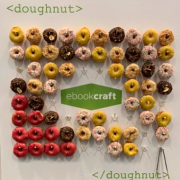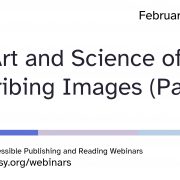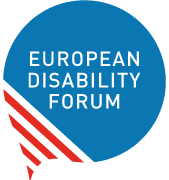Inspiring Words from Industry Leaders: Interview with Luc Audrain, Hachette Livre
Inclusive Publishing has embarked on a series of interviews with industry leaders and their approach to accessibility. Luc Audrain, Head of Digitilization at Hachette Livre, has been a driving force within the publishing industry, both in France and internationally, on the subject of accessibility. 
Nothing has been more valuable for me during these last two years than being in touch with visually impaired people and understanding their skills in managing mails, sms, ebooks, etc.
Why is inclusive publishing important to you and/or your organization?
Market Expansion: visually impaired people are suffering from a “book famine”. They are eager to be included in the mainstream reading experience and when a natively accessible ebook catalogue becomes available, I’m sure they are more than ready to lend or buy these titles
Regulations: at a national and European level, rules are being set to enforce the accessibility of products and services. We are taking these rules seriously and are preparing ourselves in advance.
Good Practices: structuring information is a must to implement accessibility within ebooks. We know, by experience, that the foundation of good practice in an editorial workflow is necessary for any kind of reuse of high quality content.
Do you have a top tip for others new to accessibility?
Structure your content!
What do you wish you knew about accessibility 5 or 10 years ago?
I wish I had had the opportunity to understand how blind people read and write digital text in their day-to-day life!
Nothing has been more valuable for me during these last two years than being in touch with visually impaired people and understanding their skills in managing mails, sms, ebooks, etc.
What do you think will be the biggest game changer for inclusive publishing in the next few years?
Technology and standards are mature: Web accessibility is well described and EPUB3 production is increasing. From the French publishers side, the subject has been grasped and a significant move has already been made to publish simple monochrome titles as natively accessible ebooks.
Be prepared to see accessible categories in ebook stores in 2018.
For those still on the fence, why should they consider accessibility?
Using the EPUB3 format and accessibility guidelines available from the IDPF and the DAISY Consortium, it is quite possible for simple books to achieve a good level of accessibility. Establishing good content structuring practices within editorial workflows helps to implement accessibility in EPUB3 files, and, in that case only, it is inexpensive.
Can you sum up your attitude towards inclusive publishing in one sentence?
Inclusive publishing sums up all the digital support I have brought to publishing teams throughout the years of my career.





